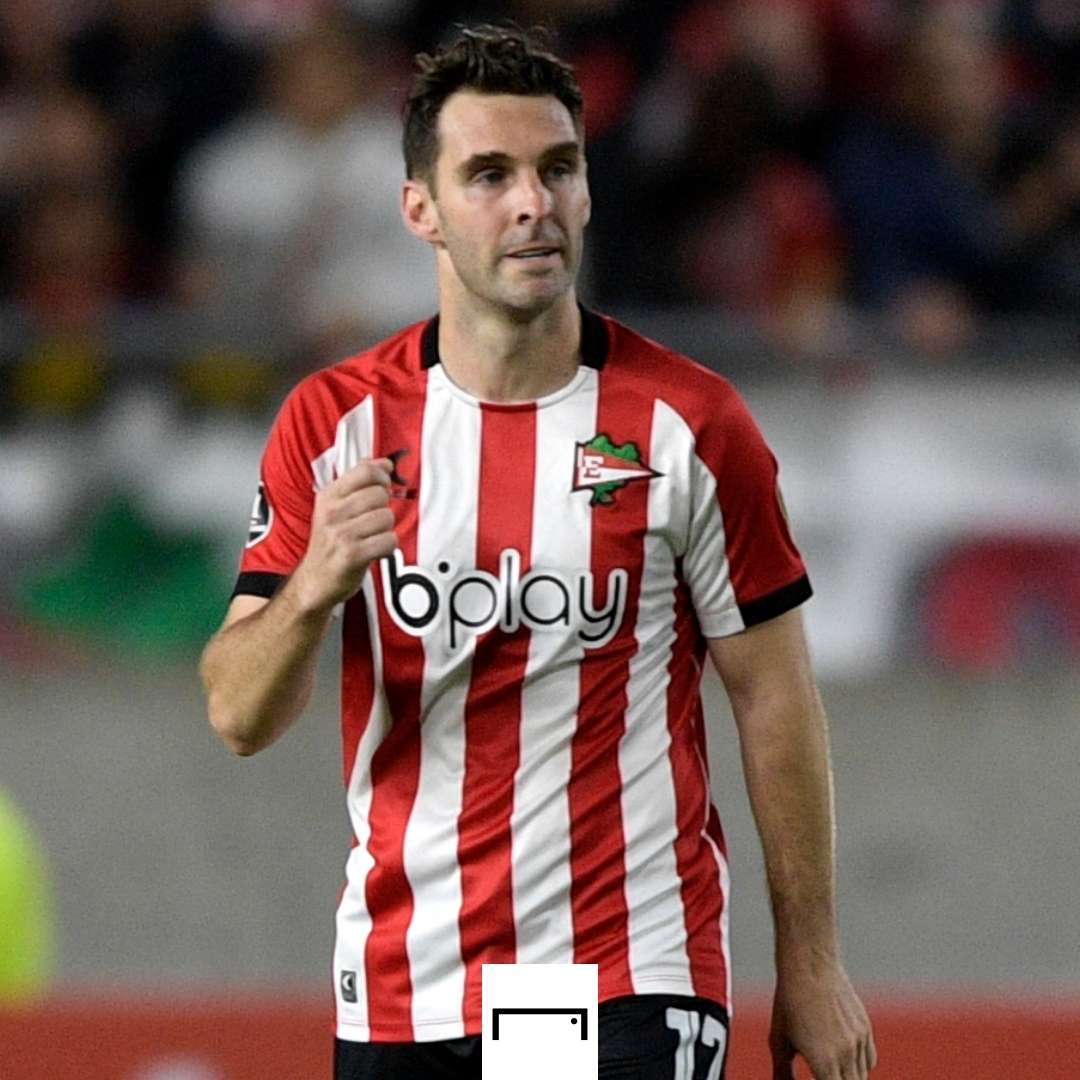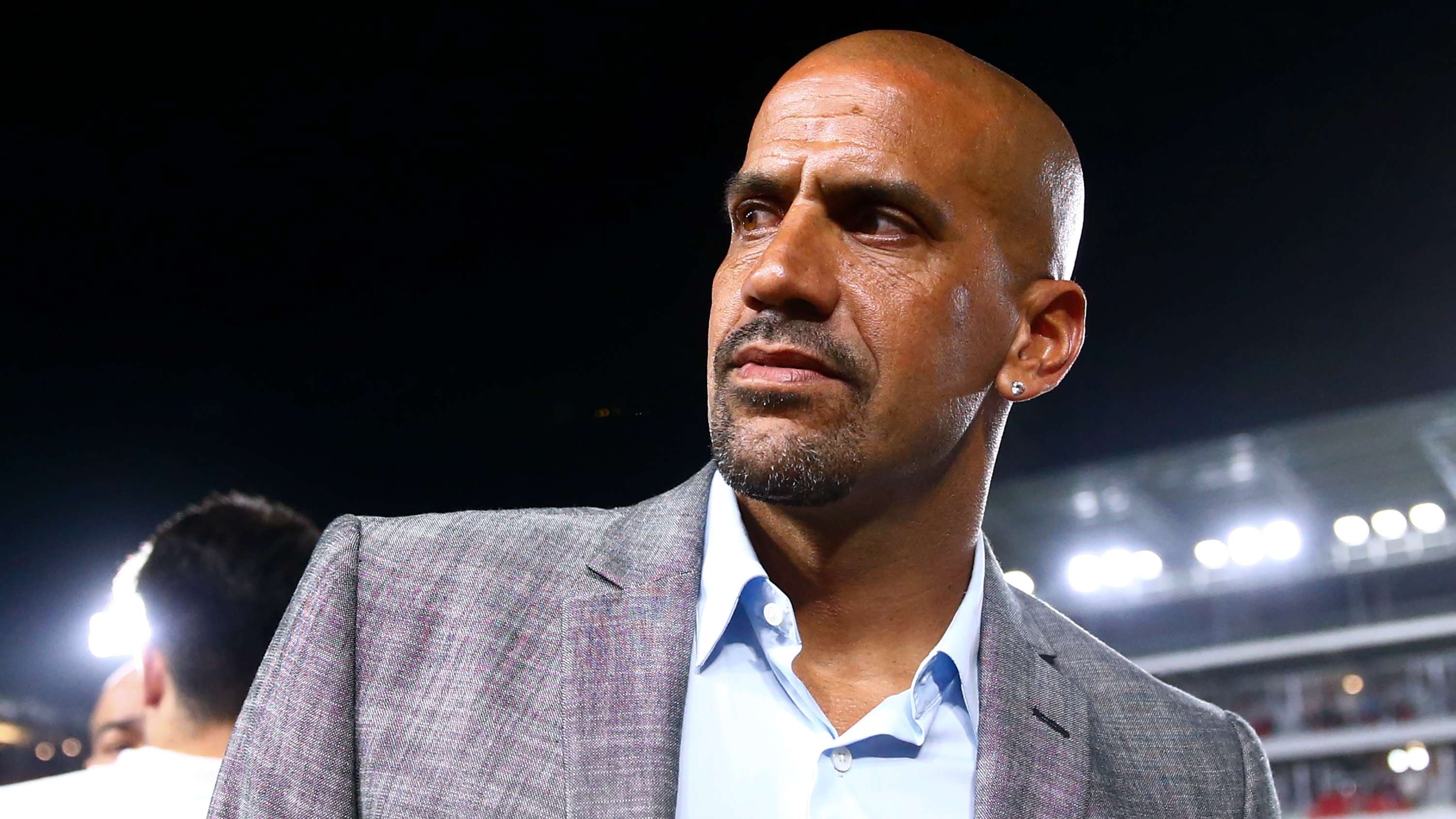While the European season is winding down, over in Argentina competition is only just heating up.
The domestic Copa Liga Profesional enters its final, play-off stages following this weekend's round of group fixtures, while the Copa Libertadores first round has already passed its halfway point as South America's strongest teams vie for a spot in the last 16.
But while there may be some way to go in both tournaments, Juan Sebastian Veron's Estudiantes team are ideally placed to make a big challenge both at home and abroad.
Veron lives and breathes Estudiantes. His father, Juan Ramon, was an idol of the club back in their golden era of the 1960s and 70s.
The midfielder sealed his own place in club history when he lifted the Libertadores himself in 2009 at the age of 34, having returned three years earlier following a successful spell in Europe with the likes of Parma, Lazio, Inter, Manchester United and Chelsea.
Next Match
Even after hanging up his boots there was no keeping him away from the La Plata side. Just six months after retiring, in December 2014, Veron enjoyed a landslide election victory to take over as Estudiantes' president, a position he occupied until May 2021 when, due to term limits, he stepped down to vice-president on a non-contested unity ticket headed by Martin Gorostegui while still retaining significant control over the side's day-to-day running.
His tenure has been a rousing success on an institutional level – most notably completing the team's venerable home stadium after 10 years of exile due to remodelling - but had been lacking on the sporting side, with the club finishing without a win in 2020's Copa Maradona following the pandemic-induced recess and a lowly 13th in the league season prior to Covid.
To turn things around, Veron turned to a familiar face; indeed, an old friend of the family.
“I was lucky enough to share a team with Juan Ramon Veron, the original Bruja, who was going into his last year of his career [at Argentino de Quilmes],” coach Ricardo Zielinski told La Nacion in 2020, just a few months before taking up the job at Estudiantes.
“Despite his age he was still a great player and more so as a person. I love him dearly. I was a kid just starting out and he taught me a lot... we kept in touch and we are friends.”
Veron also played up their bond to reporters when his appointment neared: “Zielinski knows me since I was little, my old man talks to him every day.
“When we started to talk to Zielinski, the old man told me that this might be his time.”
Veron Sr. has proven right on the money. The grizzled journeyman immediately oversaw an improvement in Estudiantes' fortunes in 2021, where they fought to a fifth-placed finish in the league that guaranteed them Libertadores football this year for the first time in four years.
This season, Zielinski's charges have exceeded even the wildest expectations of Pincha fans. They have already sewn up first place in Group B of the Copa Liga Profesional and on Thursday became the first Argentine team to seal their spot in the Libertadores knockout stages, sitting top of Group C with 10 points from their first four games.
But perhaps as much as the results, the coach has been taken to the club's heart precisely because he plays the type of football Estudiantes revel in: a philosophy that stretches back to the time of Veron Sr., Osvaldo Zubeldia and the legendary Carlos Bilardo, the subject of a recent HBO documentary telling the 1986 World Cup winner's gripping life story which has proved a roaring success across Latin America.
The best Estudiantes teams are watertight at the back, direct, efficient and, as Manchester United found out in their bruising 1968 Intercontinental Cup defeat, not averse to deploying football's dark arts.
 Getty Images
Getty ImagesThat uncompromising style of play earned them three consecutive Libertadores titles between 1968 and 70 as well as a fearsome reputation across South America, one that continued to the 1980s when former midfield hardman and trained gynaecologist Bilardo took to the bench and led them to the 1982 Metropolitano prior to taking up the Argentina job.
Zielinski appears a worthy heir to that tradition. Having cut his teeth in the lower leagues and overseen two successful promotion campaigns to the top flight with Chacarita Juniors and Belgrano – the latter famously going up at the expense of River Plate in 2011 – El Ruso is a born battler, and will not lose any sleep over criticisms of his uncompromising style as long as the results keep coming.
His squad, assembled on a fraction of the budget enjoyed by the likes of River and Boca Juniors, is cut largely from the same mould. Ex-Wigan striker Mauro Boselli, 36, is the Primera's top scorer with nine goals this season and along with goalkeeper Mariano Andujar one of two veterans of the 2009 Libertadores triumph still playing in La Plata.
Boselli's attacking partner Leandro Diaz, meanwhile, has chipped in with six strikes, as well as doing his part to infuriate what feels like half of Argentina with his constant needling of opposing supporters: he called derby rivals Gimnasia “cowards” after last year's 4-4 draw, while one elderly fan of ex-employers Huracan was so incensed after Diaz mockingly celebrated a winner against the club this year that she told television cameras: “He can't do that. He's crazy. We should kill him.”
The hard work has of course only just begun for Veron, Zielinski and their confident charges. The decisive phases of both competitions are looming around the corner, with tests against the likes of Boca, River and Brazil's heavyweights promising to pose a real challenge for the early front-runner.
But if they can keep channelling that famous Bilardo spirit, no team will relish going up against them in these coming decisive months.


